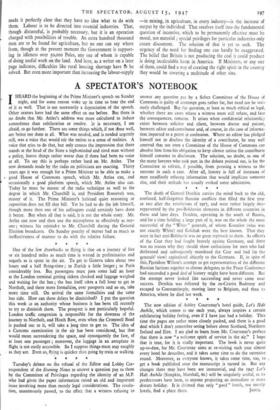The death of General Denikin carries the mind back to
the old, confused, half-forgotten Russian conflicts that filled the first year or two after the revolutions of 1917, and were rather largely mis- represented by the pro-Bolshevist elements in different countries in those and later days. Denikin, operating in the south of Russia, and for a time holding a large part of it, was on the whole the most successful of the " White " generals, of whom Kornilov (who was not exactly White) and Kolchak were the best known. That they were in fact anti-Bolshevik was no great reproach to them. As officers of the Czar they had fought bravely against Germany, and there was no reason why they should show enthusiasm for men who had dethroned and subsequently murdered the Czar and had (in the generals' view) capitulated abjectly to the Germans. If, in spite of this, President Wilson's attempt to get representatives of the different Russian factions together to choose delegates to the Peace Conference had succeeded a good deal of history might have been different. But the attempt never looked like succeeding' and never came near success. Denikin was defeated by the ex-Czarist Budenny and escaped to Constantinople, moving later to Belgium, and then to America, where he died last week.


































 Previous page
Previous page